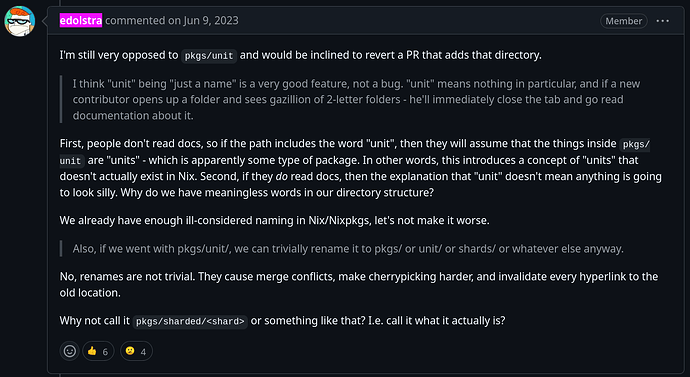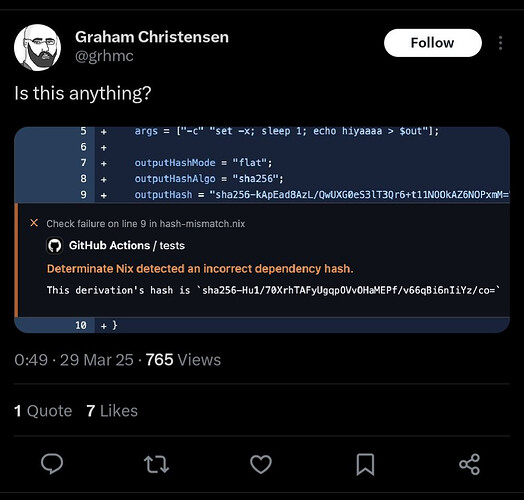His only post in that entire thread:
There is a difference between saying “I will revert this thing” (evidently how you interpreted his remarks) and “If it were up to me, I’d rather revert this thing” (a slightly more charitable reading). It’s totally fine to have that opinion, as long as the fellow doesn’t take up a lot of space with argument–which he didn’t–and goes along with the process–which, based on him merging the RFC, he did.
(I’ll also note that at least 6 folks agreed with him, and the other 4 were just confused, to the degree we can trust emojis.)
If the problem is the overreaction to Eelco disagreeing on that or expressing opinions, that’s not on him. If the problem is him actually blocking progress, that’s a technical issue that can be worked around–but at the very least this is not an example of that.
I think a lot of folks here are in the position of having overreacted to Eelco at one time or another–taking him too seriously, fwiw–and then being unable to back down and admit “shit, we made the boogeyman ourselves”. The best example of this is upthread where the exchange went basically:
- “Eelco and DetSys are holding features back!”
- “Okay they literally have a PR open though”
- “But we can’t use that PR, we’re not the authors!”
- “Bro it’s literally open source, here’s the new PR with the same changes, we have the features”
- “Well, um, I wouldn’t feel comfortable being rude and taking his work”
- “Bro your fellow travelers are literally calling for him and DetSys to be banned, after a year of campaigning and smearing (like, has the save-nix-together thing just slipped everybody’s mind?). Why are you worried about being rude to him?”
I know there’s a lot of bad blood, but there’s a lot of own-goals here too. Hence, let’s focus on the boring technical issues–and whenever we do, it seems that the progress is made.



